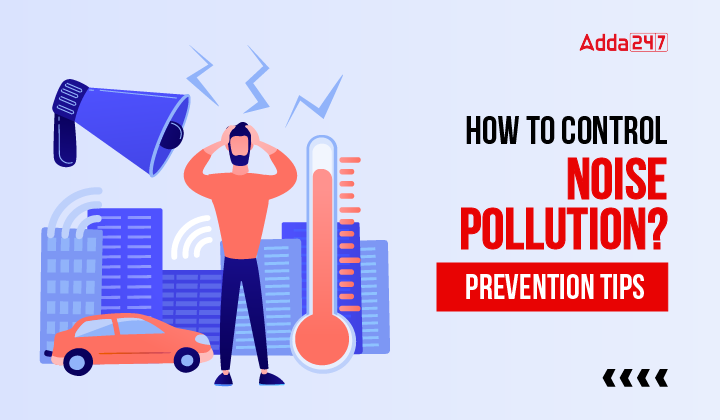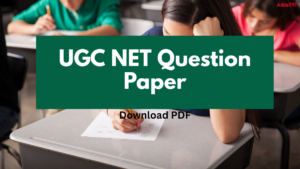Table of Contents
Pollution has made life on Earth difficult. Emission of greenhouse gases and other pollutants is not the sole cause of this grave issue but other factors contribute to this great menace. Noise pollution is also one of them. Excessive noise around us has not only raised hearing problems but also different health issues like stress, anxiety, hypertension etc. Hence it becomes important that we should take steps to cure this issue. In this article, we will discuss noise pollution in detail and different strategies to control it.
Understanding Noise Pollution
Before we delve into the solutions, it’s essential to understand what noise pollution is and its impacts on both individuals and the environment. Noise pollution refers to excessive or disturbing noise that disrupts the natural balance of human or animal life. It can originate from various sources, such as transportation, industrial activities, construction sites, and recreational activities.
Noise pollution has become an ever-increasing concern in our bustling modern world. The constant cacophony of traffic, construction, machinery, and other sources of noise can take a toll on our physical and mental well-being. From disrupting sleep patterns to increasing stress levels, noise pollution poses serious health risks. It’s important to explore the adverse effects of noise pollution and provide practical tips on how to control and prevent it, promoting a quieter and more serene environment for all.
Impact of noise pollution on Health
Noise pollution can have severe consequences on human health. Prolonged exposure to loud noises can lead to hearing impairment, stress-related ailments, cardiovascular issues, and sleep disturbances. Chronic noise exposure has been linked to an increased risk of hypertension, heart disease, and even mental health problems like anxiety and depression.
Impact of Noise Pollution on the Environment
Apart from affecting humans, noise pollution also impacts wildlife and the ecosystem. Many animals rely on their auditory senses to communicate, find mates, and detect predators. Excessive noise disrupts these processes, leading to behavioural changes and potential harm to biodiversity. Noise pollution can also disturb the natural habitats of many animals, affecting their reproduction and survival.
Controlling Noise Pollution
Controlling noise pollution requires a collective effort from governments, industries, and individuals. Let’s explore effective measures to minimise noise levels and create a more peaceful environment.
- Urban Planning and Zoning: Well-planned urban development is crucial in controlling noise pollution. City planners should prioritise creating buffer zones between residential areas and noisy sources like highways and industries. Zoning laws can restrict the establishment of noisy facilities in residential neighbourhoods, ensuring a quieter living environment for residents.
- Noise Barriers and Soundproofing: Constructing noise barriers along highways and railways can significantly reduce the impact of traffic noise on nearby communities. Likewise, soundproofing buildings and homes can help create quiet indoor spaces, shielding occupants from external noise. This involves using noise-absorbing materials, double-glazed windows, and insulating walls and ceilings.
- Implementing Low-Noise Technologies: Industries and manufacturers should adopt low-noise technologies and machinery to reduce noise emissions. For instance, electric vehicles are quieter than traditional combustion engines, making them an eco-friendly option to combat traffic noise. Encouraging research and development in noise reduction technologies can lead to more innovations in the field.
- Enforcing Noise Regulations: Stringent noise regulations and their proper enforcement are essential to controlling noise pollution. Governments should set acceptable noise levels for different areas and activities and implement penalties for non-compliance. Community members can play a role in reporting excessive noise incidents to authorities, ensuring that noise pollution is taken seriously.
- Public Awareness and Education: Raising public awareness about the harmful effects of noise pollution is vital. Through educational campaigns and workshops, people can learn about noise reduction techniques and understand the importance of minimising noise levels in their daily lives. Knowledgeable and empowered citizens are more likely to take action to reduce noise pollution.
Preventing Noise Pollution
Prevention is always better than cure, and when it comes to noise pollution, proactive measures can make a significant difference.
- Noise-Reducing Landscaping: Green spaces not only offer aesthetic benefits but can also act as natural noise barriers. Planting trees and shrubs along roadsides, between residential areas and noisy zones, and near industrial sites can effectively absorb and deflect sound waves. This approach is not only environmentally friendly but also provides numerous other ecological benefits, including air purification and habitat restoration.
- Promoting Public Transport and Active Mobility: Encouraging the use of public transportation and promoting active mobility options, such as walking and cycling, can significantly reduce vehicular noise pollution. Governments can invest in developing efficient public transportation systems, pedestrian-friendly infrastructure, and cycling lanes, thereby incentivizing people to opt for quieter and greener modes of transportation.
- Scheduling Noisy Activities: In construction, infrastructure maintenance, and other noisy activities, careful scheduling can minimise disruptions to nearby residents. Performing noisy tasks during off-peak hours or weekends when the number of people affected is minimal can be an effective approach. Additionally, notifying the community in advance about upcoming noisy activities can help residents prepare and adjust their schedules accordingly.
- Responsible Use of Personal Devices: In an increasingly digital world, personal devices such as smartphones and headphones have become ubiquitous. Encouraging responsible use of these devices can help prevent noise pollution. Individuals can use headphones at reasonable volumes and be mindful of the noise they generate in public spaces, such as restaurants, public transport, and parks.
Interesting Facts and Figures
- Noise pollution has been identified as a significant environmental stressor. The World Health Organization (WHO) states that it is second only to air pollution in terms of its adverse effects on health.
- According to the U.S. Environmental Protection Agency (EPA), prolonged exposure to noise levels above 70 decibels (dB) can lead to increased stress levels, disturbed sleep, and decreased productivity.
- Noise pollution can affect marine life as well. For example, excessive underwater noise from ship traffic and construction can disrupt marine animals’ communication, navigation, and feeding patterns.
- Noise pollution in classrooms can hinder students’ learning outcomes. The American Speech-Language-Hearing Association (ASHA) reports that noisy classrooms can negatively impact students’ speech perception and academic performance.
Conclusion
Noise pollution is a pervasive issue that affects our health, well-being, and the environment. By understanding its impact and taking proactive steps to control and prevent it, we can create a more peaceful and sustainable world. Governments, industries, and individuals all have a role to play in reducing noise pollution and fostering a quieter and healthier society for future generations. Let’s unite in our efforts to silence the noise and embrace the tranquillity that comes with sound environmental practices.



 UGC NET Previous Year Question Papers wi...
UGC NET Previous Year Question Papers wi...
 MPPSC Assistant Professor Syllabus 2026,...
MPPSC Assistant Professor Syllabus 2026,...
 UGC NET Question Paper 2026 Out (Memory ...
UGC NET Question Paper 2026 Out (Memory ...












